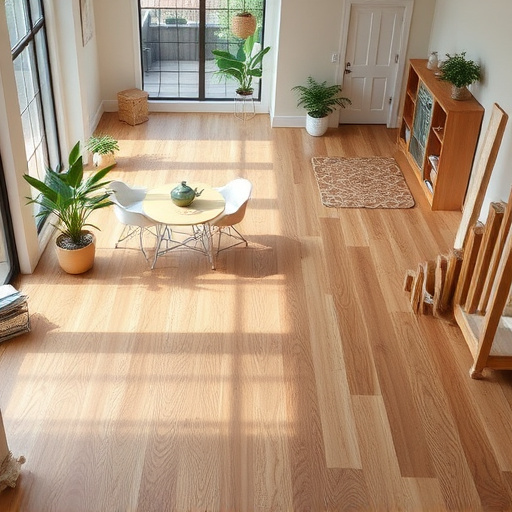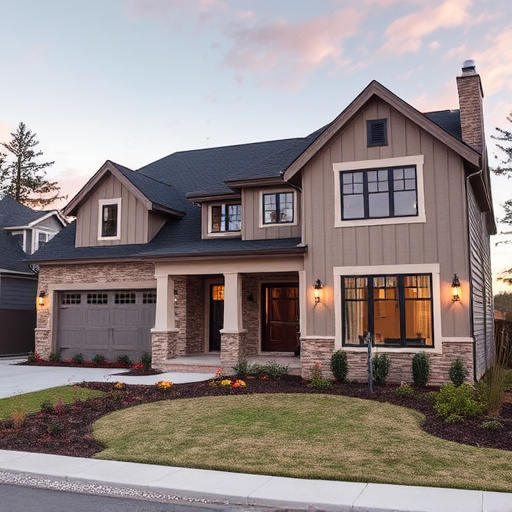Home Contractor: Architects’ Key Collaborators for Dream Spaces

Transforming home visions requires a collaborative effort between home contractors, architects, and…….
In the ever-evolving world of construction, the role of a home contractor is more critical than ever. They are the orchestrators of your dream home, turning architectural blueprints into tangible structures. This article aims to provide an in-depth exploration of the multifaceted world of home contractors, delving into their definition, global impact, economic significance, technological innovations, regulatory framework, challenges, and future prospects. By the end, readers will gain a comprehensive understanding of this vital sector and its crucial role in shaping our built environment.
A home contractor, in its essence, is a professional or a company responsible for managing and executing residential construction projects. Their multifaceted roles encompass everything from initial project planning to final completion, ensuring the successful delivery of a new or renovated home that meets client specifications.
The core components of their work include:
Project Management: Contractors coordinate various aspects of construction, including scheduling, budgeting, procurement of materials, and supervision of labor.
Design Implementation: They translate architectural designs into physical structures, ensuring compliance with building codes and regulations.
Construction Techniques: This involves specialized skills in foundation work, framing, roofing, electrical, plumbing, and finishing touches to create a safe and aesthetically pleasing space.
The concept of home contracting has deep roots in human history, dating back to ancient civilizations where skilled artisans were hired for their expertise. However, the modern home contractor as we know them today emerged during the industrial revolution when construction processes became more standardized.
With the rise of mass production techniques, there was a growing demand for residential buildings, leading to the formalization of contracting practices. Today, home contractors play a pivotal role in:
Meeting Housing Demands: They contribute significantly to addressing housing shortages and meeting the diverse needs of individuals and families seeking customized homes.
Economic Growth: The construction industry, led by home contractors, drives economic growth through job creation, material procurement, and local business development.
Community Development: Well-planned residential projects enhance community aesthetics, improve infrastructure, and foster a sense of belonging.
Home contracting is a global phenomenon, with varying practices and trends across regions influenced by cultural, economic, and regulatory factors. Here’s a glimpse into its international impact:
| Region | Trending Practices | Influencing Factors |
|---|---|---|
| North America | Sustainable building practices, smart home technology integration | Environmental consciousness, government incentives for energy-efficient homes |
| Europe | Modular construction, off-site manufacturing | Labor costs, rapid urbanization, and space optimization |
| Asia Pacific | High-rise residential towers, traditional craft fusion | Rapid urbanization, growing middle class, cultural blend of modern and traditional design |
| Middle East | Large-scale luxury villa developments, architectural innovation | High demand for second homes, investment in luxurious amenities |
These regional trends highlight the diverse nature of home contracting, with each region adapting practices to suit local needs and preferences.
The global home contracting market is a significant contributor to the construction industry, valued at USD 12.5 trillion in 2021 and projected to grow at a CAGR of 4.8% from 2022 to 2030 (Source: Grand View Research). This growth is fueled by various economic factors:
Housing Shortages: Many countries face acute housing shortages, driving demand for residential construction.
Urbanization: Rapid urbanization in developing nations increases the need for new homes and renovations.
Affordable Housing Initiatives: Governments worldwide are promoting affordable housing projects, attracting investments from contractors.
Home contractors play a vital role in:
Job Creation: They contribute significantly to employment, with construction accounting for a substantial portion of global jobs, especially in developing economies.
Economic Stimulus: The industry stimulates economic growth through material procurement, labor costs, and business development.
Tax Revenue Generation: Construction projects generate tax revenues for local governments, contributing to public services and infrastructure development.
Technology has revolutionized the home contracting industry, improving efficiency, safety, and sustainability. Some significant advancements include:
Building Information Modeling (BIM): BIM software enables 3D visualization of construction projects, improving collaboration, design accuracy, and cost estimation.
Off-Site Construction: Modular and prefabricated construction techniques reduce project timelines, minimize waste, and offer better control over quality.
Smart Home Technology: Integration of IoT (Internet of Things) devices allows for automated home systems, energy efficiency, and enhanced security.
Drones and Robotics: Drones inspect sites, survey land, and aid in construction monitoring, while robotics assist in dangerous tasks, improving safety and precision.
These technological innovations not only enhance productivity but also contribute to more sustainable and resilient homes.
The home contracting industry operates within a complex web of policies and regulations that vary by region and country. These frameworks ensure quality construction, consumer protection, and safety standards:
Building Codes and Permits: Local authorities enforce building codes and require permits for construction, ensuring compliance with structural, safety, and health standards.
Consumer Protection Laws: These protect homeowners from fraudulent practices, ensuring transparent contracts and fair pricing.
Labor Regulations: Policies regarding minimum wages, working hours, and worker safety are implemented to safeguard contractors and their teams.
Environmental Standards: Many countries have regulations for sustainable construction practices, waste management, and energy efficiency.
Despite its significance, the home contractor industry faces several challenges that can impact project quality and success. Addressing these issues is crucial for sustained growth and public trust:
Skill Shortage: The construction sector, including home contracting, often struggles with a shortage of skilled labor, leading to delays and increased costs.
Project Delays and Cost Overruns: Unforeseen challenges, such as weather events or material shortages, can cause significant project delays and budget overruns.
Safety Concerns: Construction sites are inherently risky, and ensuring worker safety while maintaining productivity is a constant challenge.
Public Perception: Negative public perception of the industry due to past scandals or poor quality work can hinder contractor reputation and business growth.
Skills Development Programs: Governments and industry bodies should invest in training programs to address skill shortages, ensuring a competent workforce.
Advanced Planning and Modeling: BIM and other technologies can mitigate project delays by improving planning and collaboration.
Robust Health and Safety Protocols: Implementing stringent safety measures and regular training sessions can minimize risks on construction sites.
Transparency and Communication: Open communication with clients, clear contracts, and transparent reporting can restore public trust.
This project aimed to develop a sustainable, eco-friendly residential community. The home contractor implemented modular construction techniques, incorporating solar panels, energy-efficient appliances, and smart home technology. The result was a highly efficient, affordable housing development that attracted international attention for its innovative approach.
Key Takeaways:
A groundbreaking luxury residential tower in a major Asian metropolis, Sky City showcased cutting-edge architecture and engineering. The contractor utilized advanced robotics for precise concrete pouring, ensuring structural integrity and speed. Smart home systems were integrated throughout, providing residents with unparalleled convenience and security.
Lessons Learned:
A historic city center renovation project in a European capital aimed to preserve cultural heritage while adding modern amenities. The home contractor specialized in historical restoration worked closely with architects to revive the area’s past glory while incorporating contemporary design elements.
Impact:
The home contractor industry is poised for further growth and transformation, driven by emerging trends and technological advancements:
Sustainable Construction: There will be an increased focus on eco-friendly materials, energy efficiency, and waste reduction, aligning with global sustainability goals.
Smart Homes as Standard: Integration of smart technology in new homes is expected to become the norm, offering enhanced convenience, security, and energy management.
Off-Site Manufacturing: The trend towards prefabrication will continue to gain momentum, enabling faster construction times and more efficient use of resources.
Digital Twin Technology: This allows for virtual modeling and monitoring of construction projects, improving design accuracy and project outcomes.
Diversification into New Markets: With urbanization accelerating worldwide, contractors may explore opportunities in emerging markets, offering specialized services tailored to local needs.
The home contractor industry plays a pivotal role in shaping our built environment and addressing critical housing needs. From historical restorations to cutting-edge modern structures, they bring visions to life while navigating complex regulatory landscapes.
As we look ahead, the industry must embrace technological advancements, prioritize sustainability, and address skill gaps to meet future demands. With continuous innovation and a commitment to quality, home contractors will remain essential contributors to our evolving urban landscapes.
Q: How do I choose the right home contractor for my project?
A: Consider their experience, portfolio, references, and reputation. Ensure they have a valid license and insurance, and discuss your project requirements thoroughly.
Q: What are the typical costs involved in hiring a home contractor?
A: Costs vary widely based on project size, complexity, location, and materials. Get detailed quotes from multiple contractors to get a clear picture of expected expenses.
Q: Can home contractors help with design and planning?
A: Absolutely! Many contractors offer design services or collaborate closely with architects to ensure your vision is realized while adhering to building codes.
Q: How do I stay updated on the latest trends in home contracting?
A: Follow industry publications, attend conferences, and join professional associations for insights into emerging trends, technologies, and best practices.

Transforming home visions requires a collaborative effort between home contractors, architects, and…….

Home contractors building strong ties with local suppliers gain access to diverse resources for cust…….

Home contractors managing multiple projects combine exceptional organizational skills, strategic pla…….

A reputable home contractor stands out through unwavering commitment to quality, rigorous planning,…….

When hiring a home contractor for renovations, understanding their warranty is crucial. A good warra…….

Before starting home projects, consult a contractor to understand local permits and ensure complianc…….

Hiring a home contractor requires detailed project documentation including blueprints, material spec…….

Investing in quality home contractor services is key for successful home enhancements. Check a contr…….

Homeowners can significantly improve energy efficiency with the help of a qualified home contractor,…….